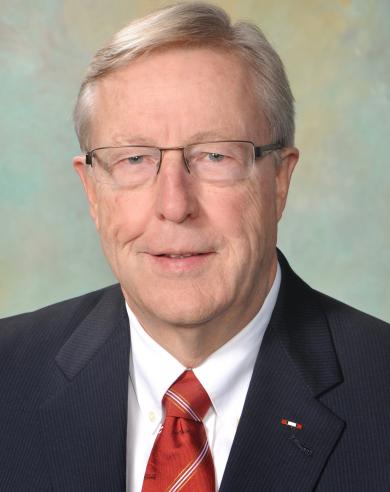Leader Spotlight: Gen. Murray Sagsveen
As part of United Religions Initiative North America’s #TangibleHope campaign, Veterans for American Ideals is recognizing veteran leaders who are continuing their service by building unity and standing up for American values. Through a series of interviews, we’re asking VFAI leaders to share more about how their service shaped them and what responsibility they feel veterans have to speak up on issues that relate to our national ideals.
Today’s interview is with Gen. Murray Sagsveen, a retired Army Brigadier General and lawyer who currently serves on the board of Lutheran Relief Services in Bismark, MD and is involved in the Human Rights First Coalition of Retired Military Leaders.
1. Tell me about your military service. (What branch? When and where did you serve? Why did you join the military?)
I joined the Army in early 1968. After graduating from college and completing basic/AIT infantry training, I was assigned to the 8th Army Honor Guard in the ROK. Within a month or so, I was reassigned to the 502d MI Bn Hq at the 8th Army Hq. I joined the military partly because that was expected in our family.
Shortly after I was released from active duty and had begun law school, I received a direct commission in MI and joined the NDARND. After graduating from law school, I was reassigned to the JAGC. I was a judge advocate in the ARNG from 1973 (1st Lt) through 1996 (BG).
In 1997 and 2011, I was recalled to state active duty as the State Flood Recovery Officer (state major general) to coordinate the recovery of Grand Forks (Red River of the North flood in 1997) and Minot (Souris River flood in 2011).
2. How did your service shape the person you are today?
In too many ways to explain. I have been blessed with military mentors, beginning with the CSM and CO of the 502d MI BN to state adjutants general to TJAG-Army. Each one guided, counseled, and mentored me along my military career. I learned, from those experiences, the importance of “passing it along”—mentoring others in their military and civilian careers.
Another lesson learned: virtually anything can be accomplished with the right team, the right attitude, hard work, and a little luck.
3. As a veteran, what sort of responsibility do you feel to speak up on issues that relate to American ideals?
I believe it is important to carefully pick your fights—to identify the issues of importance and take action on those issues.
For example, around 2007 I joined a group of retired military officers who, with the support of Human Rights First, spoke out about torture, military commissions, detention without charges or trial, closing Guantanamo, etc. In 2009, President Obama invited us to be present when he signed his executive order to prohibit torture and to close Guantanamo. For the past ten years, we have continued to address evolving human rights issues as a group with the support of Human Rights First.
At the same time, at the state level, I have supported human rights issues, especially relating to LGBT issues. It is a human rights issue.
4. Tell me about one issue related to those ideals that is of particular importance or concern to you right now. What are you doing about it?
I fear that our group of retired military officers, working with Human Rights First, must re-engage on issues that we believed were resolved years ago—torture, detention without trial, closing Guantanamo, and related human rights issues.
Also, I am on the board of directors of Lutheran Social Services of North Dakota, which resettles refugees in the state. I oppose, and will continue to speak out, concerning efforts to prevent the resettlement of refugees in the United States and North Dakota.
5. What would you say to other veterans about the role that they can play in these issues as citizens?
Veterans, working together, can have significant influence in public policy issues. Select an organization that reflects your values, financially support the organization, and get involved.


